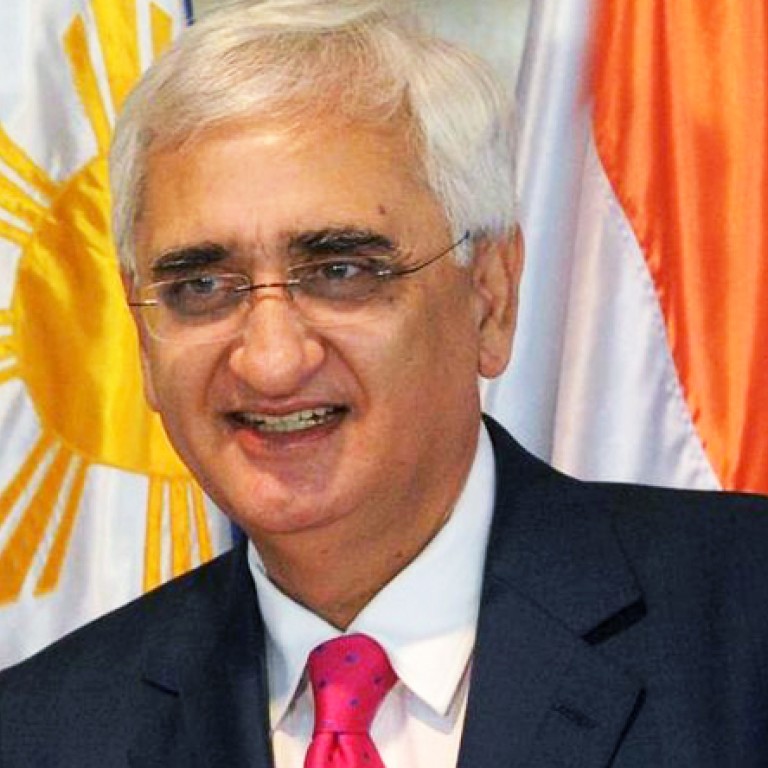
We won't interfere in China's sea disputes, says Indian minister
India shows 'patience' when dealing with China on a range of issues, including disputed borders
The territorial dispute between Manila and Beijing is a bilateral issue in which New Delhi will not interfere, Indian external affairs minister Salman Khurshid told the .
His comments come as Prime Minister Manmohan Singh embarks on three-day visit to China to discuss reducing border tensions, boosting trade and easing visa requirements.
Singh has faced attacks from the opposition for being too soft in trade and border disputes with China, just months before India's general election.
But Beijing will no doubt be watching closely the visit by Khurshid to Manila, where he has agreed with his Philippines counterpart to embark on a strategic partnership, and increase military exchanges.
Beijing and Manila are engaged in an acrimonious stand-off over disputed territory in the South China Sea.
The apparent tag-team diplomacy by Singh and Khurshid appears to show India's intent to play both sides - while staying neutral in China's disputes with other countries. India has grown more reliant on China over the past decade, with two-way trade growing to US$66 billion last year. It also wants to boost its influence in Southeast Asia, where China is making greater inroads.
"It is a coincidence that [Singh] is in China and I'm here," Khurshid told the .
During an open forum yesterday following his lecture on India's foreign policy where he emphasised India's "look east policy," Khurshid said there had never been an occasion where China told India to stay out of the South China Sea. "Because we don't interfere," he said.
India's state-owned Oil and Natural Gas is in joint venture with Vietnam in an offshore gas field area which China claims.
"We do believe that anything that is a bilateral issue between two nations must be settled by those two nations," he said.
"But if someone seeks advice, if someone seeks comfort, of course we will give it."
He did, however, praise Manila for bringing the South China Sea dispute before a UN tribunal. China has rejected the move, saying the dispute should be resolved through two-way talks.
"When you deal with the Chinese you have to be patient," Khurshid said. "It is important because it is an old civilisation. We are an old civilisation. We have learned to work with patience … and a pace that is acceptable to both."
India has its own border disputes with China. In April, it alleged that Chinese troops had crossed into Indian-held territory, triggering a three-week escalation in tensions that ended with an agreement negotiated by army commanders. China denied any wrongdoing.
Sun Shihai, an expert in South Asia affairs at the Chinese Academy of Social Sciences, said India's diplomacy should not be interpreted as an attempt to contain China.
"India is strengthening influence in Southeast Asia, but it is not attempting to encircle China," he said. "China also realises that Southeast Asia will never be its power base."


